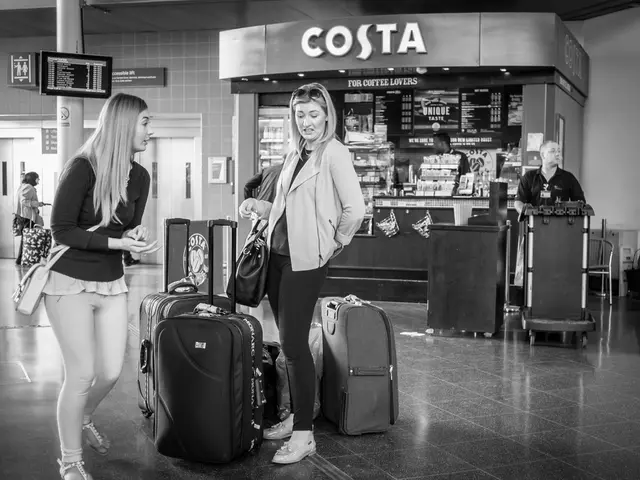EU Transport Ministers Debate Overhaul of Flight Delay Compensation Policies
Transport officials in the European Union are discussing a revamp of the system to provide travelers with financial reimbursement when their flights are delayed. - Negotiations among EU transport ministers over revising the compensation for flight delays regulation
During the recent gathering of EU Transport Ministers, consensus couldn't be reached on the proposed flight delay compensation reforms. Germany stands firm, advocating for preserving the three-hour threshold, and has even presented an alternative proposal. Its Minister Patrick Schnieder (CDU) will attend the discussion in Luxembourg.
- EU
- Flight
- Transport Ministers
- Compensation
The main objective behind this reform is to revamp and simplify the existing framework, which has remained stagnant for over a decade. This update seeks to bolster transparency, streamline compensation procedures, and strengthen obligations for rerouting passengers. However, the suggested modifications, particularly regarding delay thresholds and compensation amounts, have sparked varying reactions from member states.
Key Proposals and Amendments
- Revised Delay Thresholds: The new proposition expands the delay threshold for short-haul and medium-haul flights to 4+ hours, and for long-haul flights to 6+ hours. This change moves the threshold away from its current 3-hour limit[1][2].
- Adjusted Compensation Amounts: Compensation for medium-haul and long-haul flights may see a reduction of EUR 100, according to the latest proposals[1].
- Simplified Compensation Process: Airlines would need to offer a dedicated form for automatic compensation processing during cancellations[3].
Germany's Position
Germany has voted against the reform, joining forces with Spain, Estonia, and Portugal. Although specific details on Germany's stance are not publicly available, the alignment of these countries suggests potential concerns over the potential diminishment of passenger protections, with the proposed changes increasing delay thresholds and reducing compensation amounts[3].
Way Forward
The ball is now in the European Parliament's court. They will review, approve, revise, or dismiss the proposals, with this process being crucial for finalizing the reform and reconciling the divergent opinions of EU member states[1][3].
[1] https://www.business-technology.ai/news/eu-transport-ministers-disagree-on-flight-delay-compensation-reform[2] https://www.theGuardian.com/travel/2021/jun/16/eu-air-passengers-rights-cancelled-flights-delay-compensation[3] https://www.euronews.com/travel/2021/06/14/eu-is-seeking-to-modernise-failed-air-passenger-compensation-rules-but-will-it-work
During the debate on revamping the flight delay compensation policies, Germany has presented an alternative proposal to preserve the three-hour threshold, reflecting the country's concerns over potential diminishment of passenger protections, as highlighted by their alliance with Spain, Estonia, and Portugal. The European Parliament now holds the key to the way forward, reviewing these proposals to either strengthen or modify current passenger rights policies.
Regardless of the political landscape, understanding the impact such reforms might have on lifestyle, travel, politics, and general news is essential for all members within the EU community. This highlights the importance of shaping competition policies that uphold balance and fairness, ensuring that all parties involved can have an equally enjoyable and uninterrupted traveling experience.








